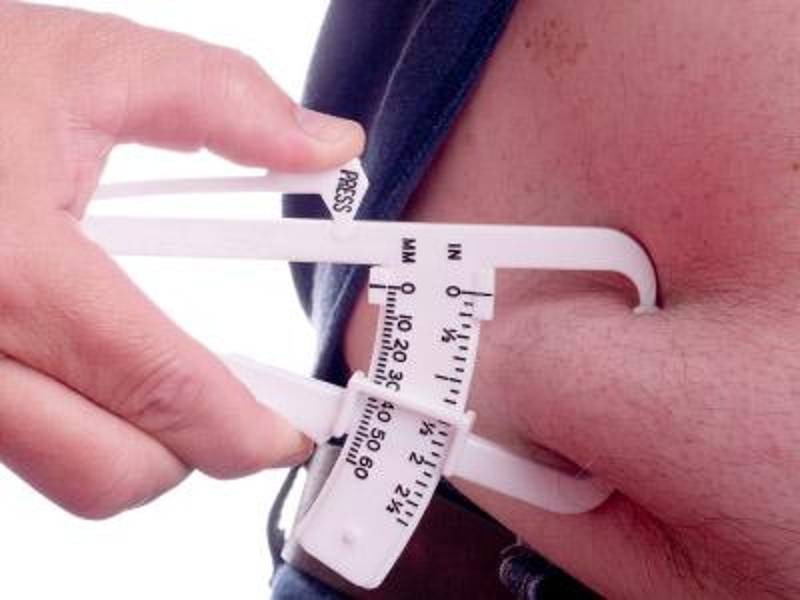
When tracking health the most common measure of progress is weight. Weight is important but it's not the whole story. The benefits of weighing yourself regularly can be:
Increasing your awareness of your weight which can help decision making throughout the day
Gaining valuable intel on what causes your weight to fluctuate
De-sensitising you to these fluctuations so your mindset is not unduly affected by a measurement not being where you wanting it to be
Reality check
Why is body fat a better measure of health than weight?
Body fat is far more important than weight which includes things such as muscle, bone and water. If you don't have much muscle, your body weight may indicate that you are not overweight, even though you may be ‘over fat'. If you're a healthy weight without having to try too hard, you could still have an unhealthy percentage of fat in your body. This is sometimes known as ‘skinny-fat' or ‘normal-weight obesity' – people who look healthy but have a high body fat percentage, which means that they are at a high risk of getting diabetes and heart disease, but you wouldn't know it to look at them. They also don't always have the incentive to exercise as this is seen as something that you do when you want to lose weight, so they just become more and more unhealthy. For that reason, more importance is placed on the percentage of weight that is fat rather than what the scales may say.
We use changes in body composition (fat to muscle ratio) as a tool to track and measure progress.
Why is tracking body fat difficult?
Tracking body fat can be difficult as we are unable to easily differentiate between body fat and other tissues in the body. The gold standard measure is using a DEXA Scanner but such equipment is not readily available and having a scan can cost thousands of pounds meaning it's not very affordable when we want to regularly track changes in body composition.
This is how we do it...
Our preferred method of tracking body composition changes is BioSignature. Poliquin® BioSignature is based on the correlation between 12- site skin folds, body fat storage and possible hormonal imbalances.
Hormonal imbalances are often the culprit of stubborn body fat storage and other health concerns including poor sleep, low energy, impaired cognitive function, and more. These measurements allow us to be more specific and focus on addressing these imbalances through lifestyle changes to improve body composition and overall wellbeing. Poliquin® BioSignature requires a trained coach and is only available at the studio.
How you can track your body fat yourself?
If you are one of our Online clients there are a number of ways to track progress and more specifically, body fat. You can:
Use a smart scale to measure weight and body fat changes
Take weight weekly
Take regular progress pictures
Take regular tape measurements
Most smart scales use a technique called Bioelectrical Impedance analysis (BIA) to measure your body fat. It does this by sending an electrical current around your body and based on the speed the current pases through you, it can predict your body fat. This is not as accurate as using skinfold calipers used by a trained professional but will allow us to track trends in body composition changes. BIA results can be influenced by our body's water content which is why, like any other measurements you take regularly and you do it at a consistent time to prevent too much variation.
Want to know what smart scale to get? Click here: http://www.motustraining.co.uk/What-Smart-Scale-is-best-for-you.html
